This morning at Microsoft’s MIX ’11 conference in Las Vegas, the company confirmed the next version of its new Windows Phone mobile operating system – code-named “Mango” – will arrive this fall. The update will bring Microsoft’s OS more on par with its competitors by finally introducing multitasking capabilities, which allows applications to run in the background, while others run in the foreground.
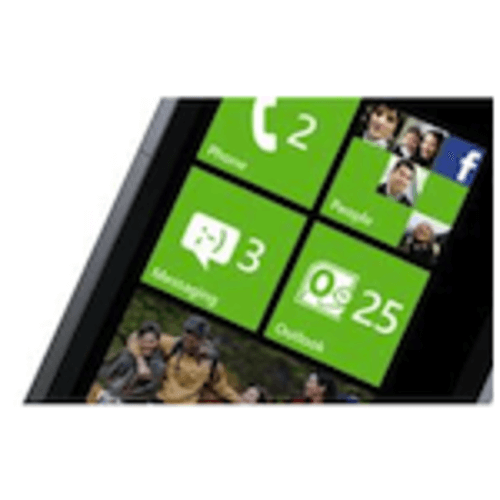
But multitasking is only one of many planned features coming in the Mango release. Also new is an updated version of Internet Explorer 9, programatic access to the phone’s camera and accelerometer so developers can build apps that utilize the device’s hardware, improved Marketplace search and filtering, additional language support and much more.
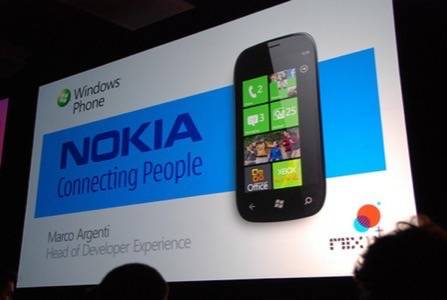
After talking about the Nokia partnership with Marco Argenti, head of Nokia’s Developer Experience, and later apologizing for the issues with the first updates Microsoft rolled out this year, Joe Belfiore, Corporate Vice President and Director of Windows Phone Program Management, turned his attention to what’s in store for Windows Phone this fall: Mango.
Multitasking
For end users and developers alike, one of the most anticipated new features is the addition of multitasking, which, in Windows Phone 7, will allow both native apps and Web applications the ability to run in the background. It will also allow you to continue listening to streaming music within one application while working in another. File transfers and the ability to quickly swap between apps will be added, too.
One notable new app that will be able to take advantage of multitasking is the popular music streaming app called Spotify, now confirmed to arrive on Windows Phone 7.

Access to Hardware, Phone’s Features
With Mango, developers will be able to build apps that take advantage of the phone’s hardware features, like the camera and the accelerometer, and will be able to more deeply integrate their apps with the phone, says Microsoft. That means that developers can take better advantage of features specific to the OS, like its “Metro” user interface controls and Live Tiles. The Tiles are one of Windows Phone 7’s standout features – the square boxes pinned to the homescreen are aggregators of real-time information from various sources, like messages, social networking updates, alerts and more. Developers will be able do more with tiles than before, even changing their color, if desired.
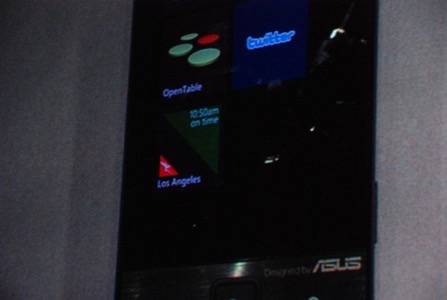
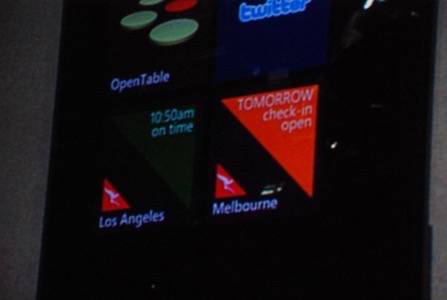
Developers will also be able to access the phone’s contacts and calendar, in order to incorporate that data into their apps. In addition, there will be access to a local SQL database, which makes it easier to do many tasks- for example, search can now be added to an app with just one line of code. Network sockets support will arrive too, as was demoed in an IRC app, interestingly a homebrew (off-Market) creation.
Front-End Updates: New Version of IE9, Better Marketplace Search
On the front-end, the Web browser on the device, IE9, will be updated to a new version that’s based on the same code base as IE9 on the desktop. During a demonstration, Belfiore showed the new IE9 playing music from an HTML5-compatible website while he switched to another app.
Also for end users is an improved Marketplace search experience. Whereas currently, apps, music and podcasts are returned in a combined fashion for any given search query, the update will allow for filtering. An app search would return just apps, for example. A podcast search, just podcasts. And so on.
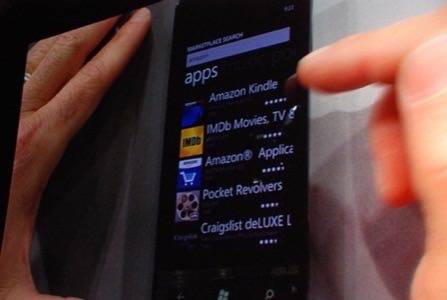
New Tools, APIs
Developers will have access to new tools, rolling out in May, that will offer new emulator capabilities, including accelerometer support via a 3D emulator, a location simulation for testing GPS-aware apps and more.
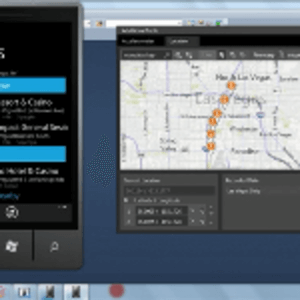
The Mango update provides access to over 1,500 APIs, said Belfiore, and brings several performance improvements, like smoother scrolling.
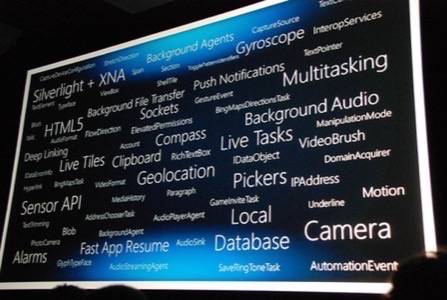
Yes, Angry Birds, Too
Microsoft again provided new numbers related to its ecosystem, making note of the 38,000 registered developers, 13,000 apps and 1.5 million downloads of its free developer tools. And it spoke of high-profile applications that are now planned to arrive on the platform, including Angry Birds, Skype, Spotify, Layar, Qantas, Amazon Shopping and Kik Messenger.

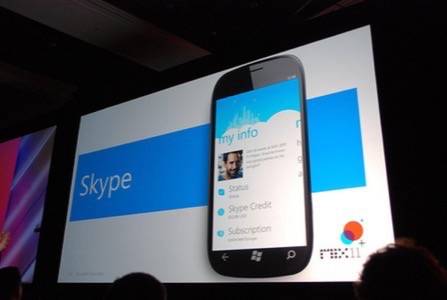
Image credits: Long Zheng, Flickr; @adamnathan, Twitter






